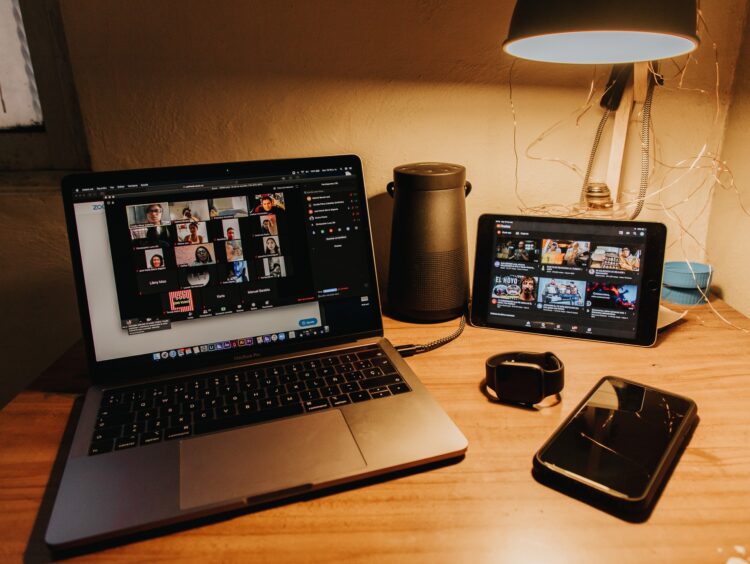
Though it’s true to say that in 2025 we have moved very much in a positive direction, the subject of depression and mental health as a whole is still very much a subject that most of us won’t discuss, even with our close friends and family, let alone a counsellor or therapist.
Great strides have been taken in this field, and that is a positive way of looking at the overall state of where we are as a society, but much more must be done to erase the stigma attached to the silent enemy that is depression.
It’s something that will hit most of us at one point or another during our lives and we all react differently to the spectre of depression.
This in turn means that we all have different internal mechanisms designed to either assist us out of these negative thoughts or, in many cases, simply force these thoughts back internally, rather than looking to discuss them with those who can really help us.
Depression, By the Numbers
Research carried out by the World Health Organization (WHO) in 2025 found that an astounding number of people suffered from some form of depression, with as many as 264 million victims of this debilitating disorder.
The numbers always, unsurprisingly, rise exponentially during periods of crisis, such as economic downturns or pandemics. However they are usually the result of very individual behaviors and incidents. Also a person’s upbringing will undoubtedly play a part in how we react to these periods of mental depression as well as what we feel we should do about them.
Depression is of course something of a catch-all term and in general terms the overall rates of mental health disorders have increased significantly but the good news is that we, as a society, are far more competent and willing to discuss the issue in public. This is, in many ways, a big leap in the overall approach to a subject that really should be discussed far more than it currently is.

Men are Far More at Risk
Though, statistically, women are far more likely to suffer the effects of depression it’s men who are most likely to resort to suicide. This is down to a number of factors, one of which relates to an inability or unwillingness to discuss the situation with anyone who might be able to help with their issues.
Men are more than three and a half times more likely to commit suicide and that’s a statistic that has remained relatively stable for decades, albeit the number has increased a great deal.
This is down in no small way to the way men, generally speaking, think about mental health and how it’s a burden that should be carried alone, for fear of shame or indeed passing on the ill thoughts as if they were contagious.
Many campaigns in recent years have been created to try to reduce these ways of thinking, with some success, but much more can be done on a global level.

Online Therapy Might Work for You
One, unexpected, upside to the recent restrictions posed upon us due to the coronavirus pandemic, comes in the form of online therapy. A number of industries, especially those who had previously not harnessed the power of the internet, have found that offering remote solutions has been something of a resounding success.
For many people the mere act of traveling to, and being in direct personal face-to-face contact, with a therapist had proved a very real barrier. Online therapy providers have neatly resolved that problem and helped bring far more people closer to those that can help them in their time of need.
The quality of service offered by providers of online therapy, and especially in the overarching sites that offer a number of professional health workers, has improved dramatically and if you are looking for a specific example of a great online therapy service then you should click here. Services, such as those offered by Oliva, are crucial in the ongoing pursuit of a societal shift towards the taboo subject of mental health.
Technological advances have also made the prospect of one-on-one sessions, conducted remotely, far more palatable. We’ve all got used to using services like Zoom and Skype to talk with those who are outside our direct network, during the peak of the coronavirus pandemic it was a crucial lifeline for many, and this is also made it easier and more viable to conduct sessions with therapists in real-time and without the glitches that would have been prevalent just a year or two ago.

A Problem Aired is a Problem Shared
It’s something of an ancient proverb but it’s certainly an accurate one. The key to taking the first steps in dealing with mental health concerns, of whatever variety, is communication. Suffering in silence is sadly where many people find themselves and making the subject of depression a less contentious one will help us all arrive at a better place as a world community.
Online therapy offers many benefits, some of which actually outweigh ‘traditional’ ways of receiving therapy. For instance, by looking to locate a mental health professional online, rather than in person, you are accessing a far wider pool of therapists. This is especially relevant to those who may live in less populated localities.
The costs associated with online therapies are also generally lower, and even more so if you deduct travel costs. Additionally the availability and accessibility of the service can be far more easily managed to suit your personal circumstances, such as trying to fit with work or family schedules.
Some of us also just feel more comfortable in our own surroundings and that makes for a more successful session because an individual that is relaxed and unencumbered by the constraints discussed previously, will be in a better place mentally to be able to effectively engage with those who can offer very real help.
Mental health issues are ones we simply can not afford to ignore and online therapy makes the bridge between an individual who desperately needs help and understanding and the provider with the tools and compassion to help, that little bit nearer at hand.











